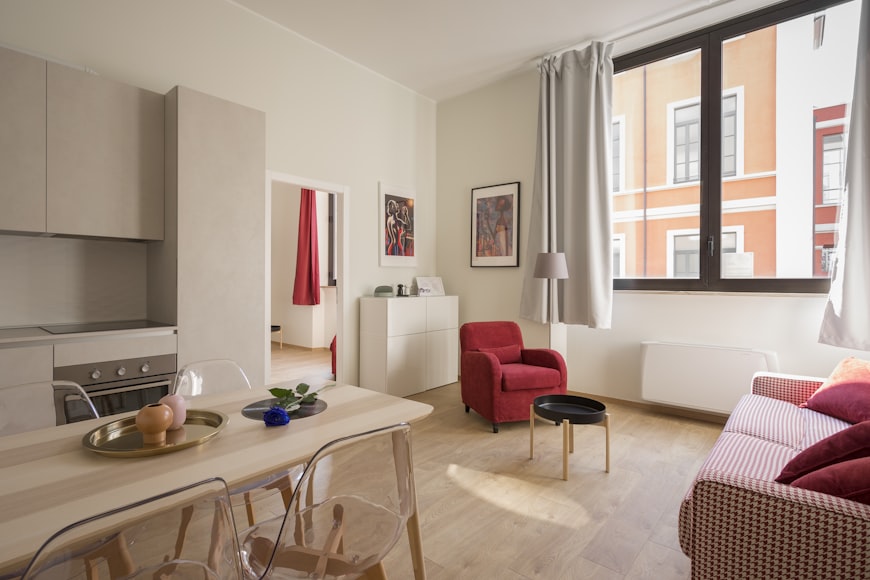When it comes to property investment, the age-old question persists: should you flip houses for quick profits or opt for the stability of renting properties? It’s a decision that every budding property investor faces. In this article, we’ll delve into the intricacies of flipping houses and renting, and ultimately, shed light on which option might be better suited to your unique circumstances. Plus, get your free property valuation with Leaders today to aid you in your investment journey.
Flipping Houses: The Allure of Transformation:
Flipping houses is a strategy that has garnered substantial attention, thanks in part to popular TV shows and success stories. It involves purchasing a property, often in need of renovation, with the intention of selling it at a higher price after enhancing its value. Here’s why many are drawn to the idea of flipping houses:
Profit Potential: Flipping houses presents the possibility of substantial short-term gains. Smart property choices and well-executed renovations can lead to a quick and lucrative sale.
Creative Control: Flippers enjoy the creative freedom to turn a property into their vision. This hands-on approach offers a profound sense of accomplishment and command over the investment.
Swift Returns: Unlike renting, which generates a monthly income over time, flipping houses can yield a lump sum profit in a relatively short period.
Market Timing: Flippers can seize opportunities in the market by purchasing distressed properties when prices are low and then selling them when the market is more favourable.
Tax Advantages: Depending on your location and circumstances, there might be tax benefits associated with flipping houses, such as deductions for renovation costs.
However, it’s worth noting that flipping houses is not without its challenges. It necessitates a significant initial capital investment for property acquisition and renovation expenses. Moreover, it entails a higher level of risk since the property must be sold for a profit to be deemed successful. A miscalculation in renovation costs or an unexpected market downturn can result in financial setbacks.
Renting: A Steady Income Stream:
Renting out properties is a more traditional and conservative investment approach. It involves buying a property and leasing it to tenants in exchange for monthly rental income. Here’s why renting appeals to investors:
Stable Cash Flow: Renting provides a reliable and steady income stream, which helps cover mortgage payments, property taxes, and upkeep costs.
Long-Term Appreciation: Over time, the property’s value may appreciate, potentially leading to significant capital gains upon eventual sale.
Lower Risk: Renting is generally perceived as a lower-risk investment compared to flipping houses because it doesn’t depend on swift property sales for profitability.
Passive Income: Rental income can serve as a source of passive income, allowing investors to maintain their primary occupations or explore other investment opportunities.
Tax Benefits: Owners of rental properties can take advantage of various tax deductions, including mortgage interest, property depreciation, and maintenance expenses.
Nonetheless, renting also has its downsides. It requires a more extended commitment, as it may take years to recoup the initial investment and witness substantial returns. Furthermore, tenant management and property maintenance can be time-consuming and occasionally challenging.
So, the million-dollar question remains: flipping houses or renting? The answer hinges on your financial objectives, risk tolerance, and personal inclinations. Consider the following factors when deciding
Financial Objectives: If you’re seeking rapid profits and have the necessary capital for renovations, flipping houses might be the right fit. On the other hand, if you prefer a steady income and long-term appreciation, renting could be more suitable.
Risk Tolerance: Flipping houses comes with higher short-term risk, while renting offers more stability. Evaluate how comfortable you are with the potential fluctuations in each strategy.
Time Commitment: Flipping houses demands substantial time investment for property searches, renovations, and sales. Renting requires ongoing property management but offers a more passive income stream.
Market Conditions: Local property market conditions can influence your decision. Analyse whether it’s currently a buyer’s or seller’s market and how that may impact your chosen strategy.
Tax Implications: Consult a tax professional to comprehend the tax advantages and implications of each strategy in your specific area.
Ultimately, there’s no one-size-fits-all solution to the flipping houses vs. renting dilemma. Both approaches have their advantages and disadvantages, and your decision should align with your financial goals and risk tolerance.




